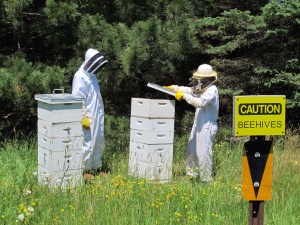I never quite understood the ancient biblical fashion for rending your garments when you ran across behavior that was particularly shocking. For one thing, shredding perfectly decent clothing is not good stewardship. Nor is it very egalitarian, since it tells everyone that there are plenty more clothes where these came from. On top of that, it’s not especially inclusive. After all, if so many of the poor in the Bible had only one set of clothes to their name, how were they supposed to signal their disgust? No, they faced the same dilemma that so many of us agonize over today. Ripping up your clothes may play well to the crowd, but what will you do when you go out in the evening and have nothing to wear?
The other problem with garment-rending is that it can send the wrong message sometimes. You may intend to communicate your disapproval by ripping in half your cloak. But to some onlookers it might come across differently. To them it could look suspiciously self-righteous. How, then, can you be sure that others get the right message?
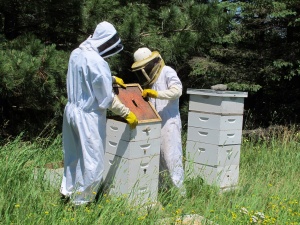 If the Bible is correct on this, Jesus himself may have been the cause of many a session of garment-rending. That may explain why one of his Beatitudes did not read “Blessed are those who thirst for self-righteousness.” No, he’d seen plenty of such people already, hanging around the public square jostling for the best angle for the camera. Jesus very likely worked on the assumption that the world had yet to run short of the self-righteous. What it needed instead were a few more who searched for righteousness. I think he meant to encourage that with this Beatitude.
If the Bible is correct on this, Jesus himself may have been the cause of many a session of garment-rending. That may explain why one of his Beatitudes did not read “Blessed are those who thirst for self-righteousness.” No, he’d seen plenty of such people already, hanging around the public square jostling for the best angle for the camera. Jesus very likely worked on the assumption that the world had yet to run short of the self-righteous. What it needed instead were a few more who searched for righteousness. I think he meant to encourage that with this Beatitude.
It’s my theory that the thirst for righteousness does not subsist in pointing out the foibles of others. Nor is it judgmental. Nor does the know-it-all come to mind when I think of the righteous person. Such people seem more intent on staking out the high ground, all the better to be seen in the best light. In the righteous person, however, there is just a hint of humility.
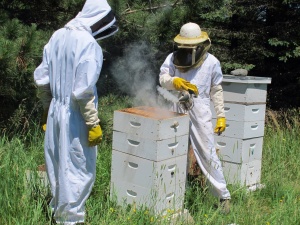 I’m the first to admit that my own thirst for righteousness could be a bit more intense. Still, I know it when I see it in others. For one thing, the righteous person does the right thing, unselfconsciously. Those who strive for righteousness are people of conviction and integrity, and they remain so even when such behavior comes back to haunt them. Such people do what they must do because it is the honorable and noble thing. They seem able to resist the herd mentality that justifies the worst behavior because “everyone else does it.”
I’m the first to admit that my own thirst for righteousness could be a bit more intense. Still, I know it when I see it in others. For one thing, the righteous person does the right thing, unselfconsciously. Those who strive for righteousness are people of conviction and integrity, and they remain so even when such behavior comes back to haunt them. Such people do what they must do because it is the honorable and noble thing. They seem able to resist the herd mentality that justifies the worst behavior because “everyone else does it.”
A second trait in those who thirst for righteousness is the power that they command. It’s not that they seek power for its own sake; nor do people bestow on them some legal responsibility. Rather, they command respect because they are people of integrity. They make a difference through lives of unstinting service, and unwittingly they become pillars of strength to whom others look for guidance.
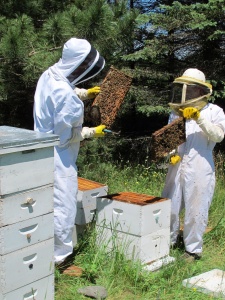 Still another feature of such people is that they try to do the right thing, even if it’s not fashionable, and even if no one is watching. They tend to the sick and the poor. They pay attention to those in distress. They take time to chat with the lonely. They lend a helping hand without thinking twice about their own inconvenience. And they do it all without benefit of megaphone, press release, or cameras rolling.
Still another feature of such people is that they try to do the right thing, even if it’s not fashionable, and even if no one is watching. They tend to the sick and the poor. They pay attention to those in distress. They take time to chat with the lonely. They lend a helping hand without thinking twice about their own inconvenience. And they do it all without benefit of megaphone, press release, or cameras rolling.
Where’s the reward in all this? Frankly, we’d be better advised to ask those who thirst for righteousness, because they’re the ones most likely to find it now and again. But my guess is that they do find it, and they find it in the faces of those who suffer, who in fact have the faces of Christ. They also find their reward when they look at their neighbors and see people created in the image of God. And at the very least, there has to be some little smidgen of satisfaction in knowing that you’ve given life your best shot. Quite possibly, if virtue is its own reward, then the search for righteousness may be an excellent example.
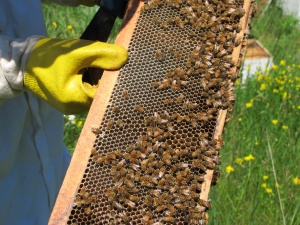 The fact of the matter is, we probably have more than enough of the self-righteous in the world. By contrast, we are painfully short of those who search for righteousness. Had there been more of such people, imagine how easy it would have been for Lot to find just ten of them. Imagine how crowded it might have been at the foot of the cross. Sadly, on both occasions far too many people were tied up being self-righteous and judgmental that day.
The fact of the matter is, we probably have more than enough of the self-righteous in the world. By contrast, we are painfully short of those who search for righteousness. Had there been more of such people, imagine how easy it would have been for Lot to find just ten of them. Imagine how crowded it might have been at the foot of the cross. Sadly, on both occasions far too many people were tied up being self-righteous and judgmental that day.
But hope springs eternal, which is why Jesus turns to us with advice that makes good sense and is cost-effective to boot. “Rend your hearts and not your garments.” Now there’s advice that’s easy on the budget. And we may well discover that righteousness is far more prevalent than we had thought.
 Notes
Notes
+The monks celebrated the 4th of July with a cookout and picnic in the garden behind the monastery. That’s been our tradition for ages, save for the times when rain ruined the day. This year the weather was perfect, and for our visiting monks from Vietnam, the Philippines, Japan, India and Austria it was a great introduction to a traditional slice of American life.
+Last week I had the opportunity to meet our bees, up close and personal, courtesy of our bee-keepers, Brothers Nick and Lew. For generations the monks at Saint John’s have kept bees, and the honey ends up on our refectory table, when the bees have enough to spare. This year our bees seem to be doing particularly well, due, no doubt, to the rains that have produced an abundance of wildflowers. At the moment clover seems to be the flower of choice; but in a few days the basswood trees will be in flower. According to those who seem to know these things, basswood makes outstanding honey.
 Monks in the Middle Ages were among the major bee-keepers in Western Europe. They used the honey in their cooking, but they also converted quite a lot of it into mead, a honey-based wine. In England the monks were especially revered for their mead, and the suppression of the monasteries during the reign of Henry VIII meant a major setback for that industry. Even so, there are still a few people who make mead, but its glory days are well in the past.
Monks in the Middle Ages were among the major bee-keepers in Western Europe. They used the honey in their cooking, but they also converted quite a lot of it into mead, a honey-based wine. In England the monks were especially revered for their mead, and the suppression of the monasteries during the reign of Henry VIII meant a major setback for that industry. Even so, there are still a few people who make mead, but its glory days are well in the past.
+In last week’s post I included several photos of Japanese tree lilacs that were in bloom across the campus. In a happy postscript, I received an email from a long-time friend and alumnus of Saint John’s, who reported that those trees were once quite rare in Minnesota. As a student he asked if he might have some seeds from the large specimen that stood in front of the Great Hall, and he duly forwarded them to the family nursery in Newport, MN. There the seeds germinated, grew and multiplied; and from there they spread across the state. Little did I know that our tree at Saint John’s had so many progeny!
